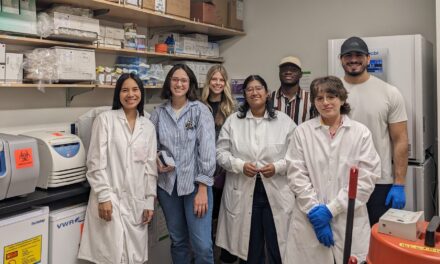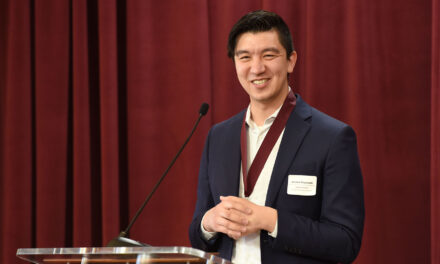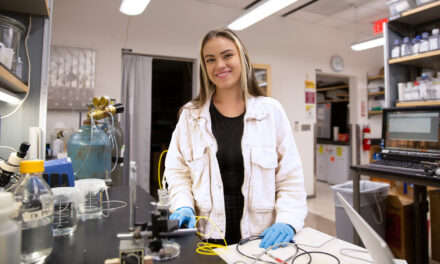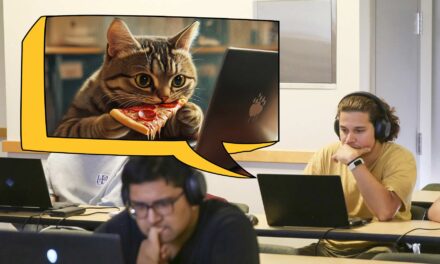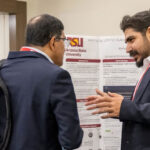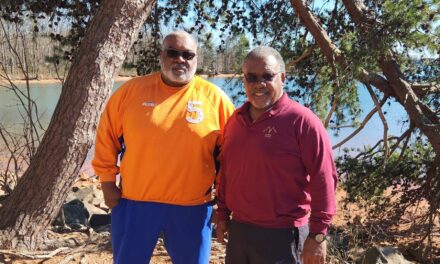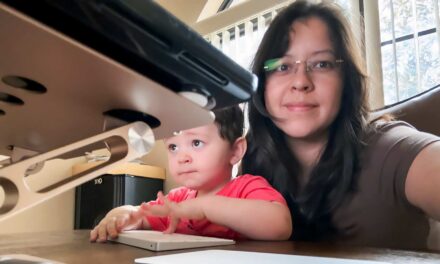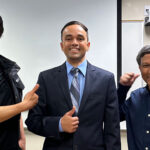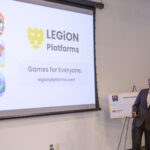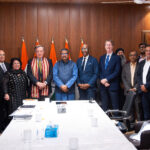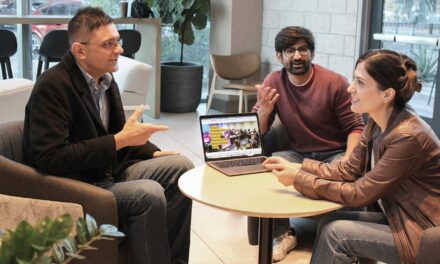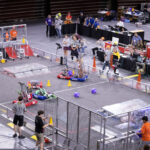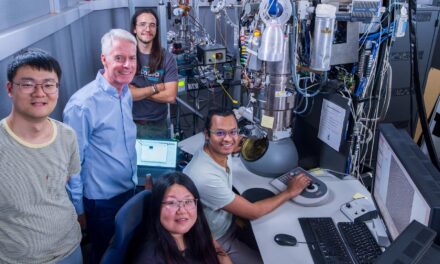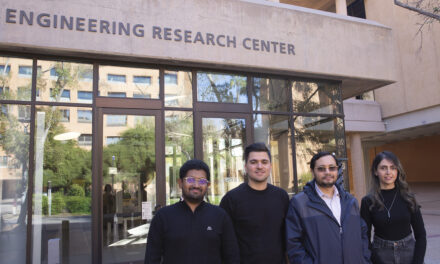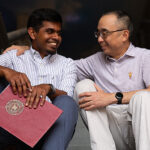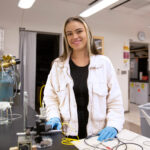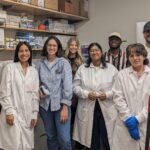
Alum inspires next generation of computer vision researchers
Successful doctoral graduate creates collaborative computing communities
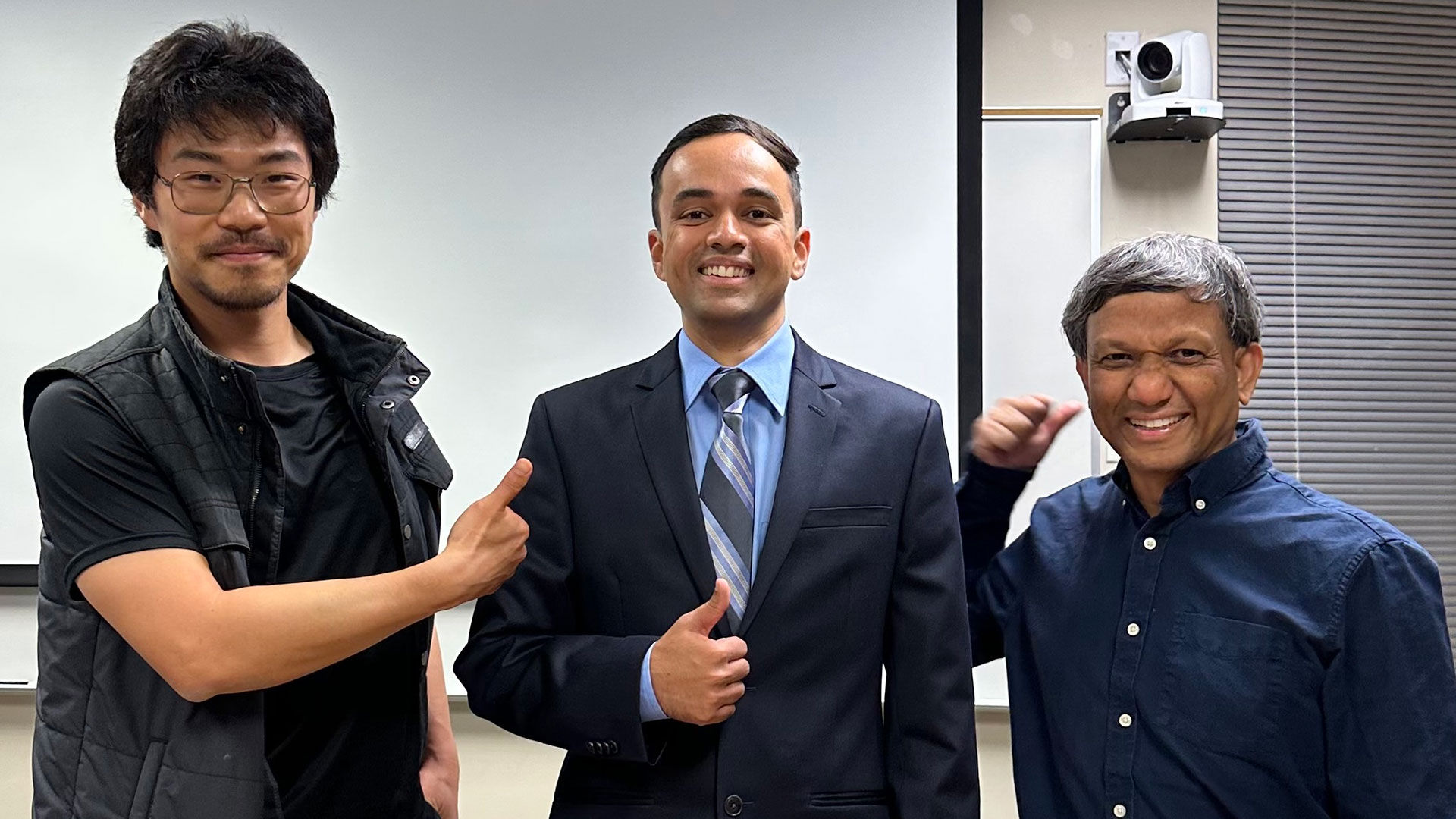
Tejas Gokhale is an emerging leader in a branch of engineering known as computer vision, where machines use sensors, cameras and complex software programs to perceive the world around them.
From self-driving cars to airport security scanners that screen luggage for dangerous contents, the use of this technology is on the rise and is rising in importance.
Gokhale is an assistant professor of computer science at the University of Maryland, Baltimore County. He received his doctoral degree in computer science in 2023 from the School of Computing and Augmented Intelligence, part of the Ira A. Fulton Schools of Engineering at Arizona State University. He explains the focus of his ongoing research.
“The goal is not just to mimic human vision, but to study the problem computationally without really being limited by human vision,” Gokhale says. “We seek lessons from all over the natural world. In the animal kingdom, birds, insects and bats all have different kinds of visual sensors, and if we can learn from them, we can create good systems. During celestial events like eclipses, tree leaves act as natural pinhole cameras and project images of the sun on the ground — it’s all quite fascinating.”
Strides in computer vision can help experts build robots that are better capable of doing dangerous jobs, improve traffic control and provide the health care sector with better imaging tools for disease diagnosis.
Gokhale is also at the forefront of studying how artificial intelligence, or AI, can be used to drive advancements in computer vision. Much of his recent work has focused on the development of AI-powered algorithms, or set of instructions computer programs use when operating, to allow machines to more efficiently interpret the data they receive from their inputs.
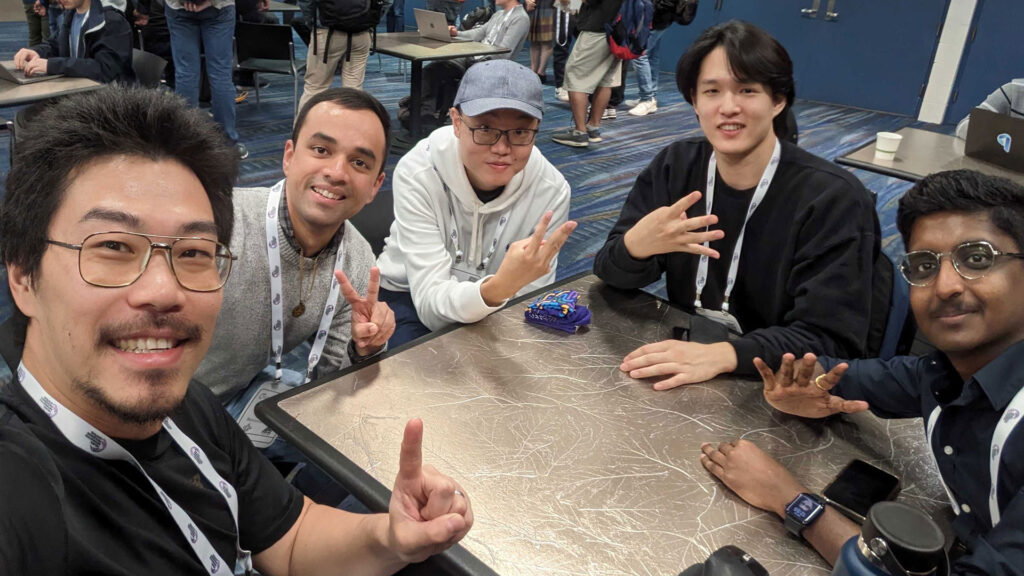
Yang (left) and Gokhale (second from left) attend an industry conference with a team of doctoral students. Gokhale says that the strong mentorship he received during his doctoral studies has influenced his career as an assistant professor and researcher. Photo courtesy of Tejas Gokhale
Meeting a mentor
Gokhale arrived at the Fulton Schools already an honors student with a master’s degree in electrical and computer engineering from Carnegie Mellon University. During his graduate studies, he discovered a passion for research, but he was searching for ways to take the next steps in his career.
He found Yezhou “YZ” Yang.
Yang, an associate professor of computer science and engineering in the Fulton Schools, is a thought leader in computer vision. He is a widely consulted authority on the safety of autonomous vehicles and serves in a variety of highly visible roles, chairing committees for multiple professional conferences and editing professional journals.
As the founder of the Active Perception Group, he trains students like Gokhale to assume advanced research roles.
Gokhale explains that the opportunity for mentorship was a critical part of his decision to pursue a doctoral degree from the School of Computing and Augmented Intelligence.
“From the very beginning, I got the sense that Dr. Yang treats students like collaborators,” Gokhale says. “He gave me a lot of space to work on my own ideas without fear. He created a learning atmosphere where I would learn from both success and failure.”
Gokhale was co-advised by Chitta Baral, a Fulton Schools professor of computer science and engineering and a trailblazer in the form of AI known as natural language processing. The added guidance added greater depth to Gokhale’s research capabilities.
The collaborative atmosphere and synergy between Yang and Baral’s groups allowed Gokhale to work on multimodal machine learning, a type of AI where systems tap both images and language. With Yang and Baral, Gokhale authored several impactful research articles and organized two conference workshops.
“Having access to two labs was unique, especially during the height of the COVID-19 pandemic,” Gokhale says. “It meant having access to two sets of friends and support systems.”
Gokhale’s efforts attracted attention. He was awarded the School of Computing and Augmented Intelligence Doctoral Fellowship, was a research scholar at the Lawrence Livermore National Laboratory, was a research intern at Microsoft Research, and was named to the CVPR 2022 Doctoral Consortium, an honor supported by the National Science Foundation.
After being awarded his doctoral degree, Gokhale assumed a tenure-track faculty position at the University of Maryland, Baltimore County where he continues his prolific work.
Seeing the future
Today, Gokhale juggles his research with mentoring doctoral students. While he has worked on program committees for top AI conferences, received awards for his papers and even co-authored his own book, he sees his most valuable contribution as inspiring others.
“I’ve published papers that I think will have an impact downstream,” he says. “But I want people to truly remember me as someone who has helped their careers. People come to academia due to their own passions, and I hope to play a role in facilitating the success of my students.”
He and Yang continue to collaborate. As a research team, they have co-authored and published numerous papers on how to innovate generative AI image tools. The work studies ways to improve the quality of images generated by computer programs and make the process more efficient and more reliable for users.
Yang says he is thrilled to pass the torch to the next generation.
“Developing robust intelligent seeing machines empowers AI systems to sense better, thus think better and act better,” Yang says. “Tejas Gokhale’s research stands at the frontier of this critical endeavor, and with such a goal in mind, he seeks to inspire the next generations of computer vision researchers and developers.”
Ross Maciejewski, director of the School of Computing and Augmented Intelligence agrees and says that Fulton Schools faculty members are dedicated to preparing students for future careers.
“YZ Yang and Chitta Baral work exceptionally hard at building a collaborative environment where all can be successful,” Maciejewski says. “Tejas Gokhale’s efforts demonstrate that our doctoral programs create graduates who are well-prepared for leadership roles in academia.”


